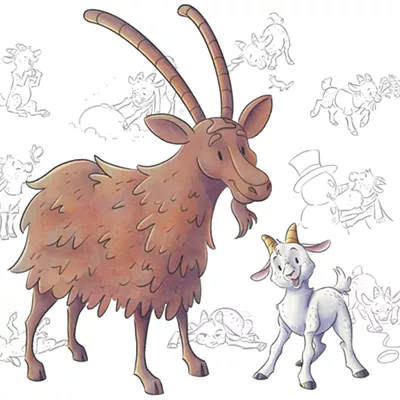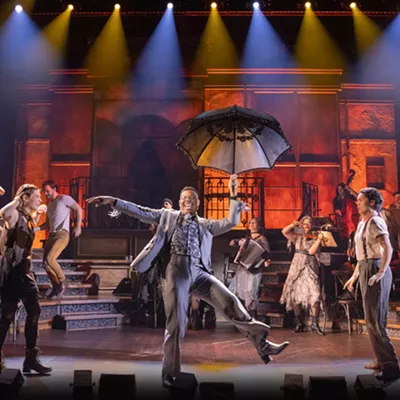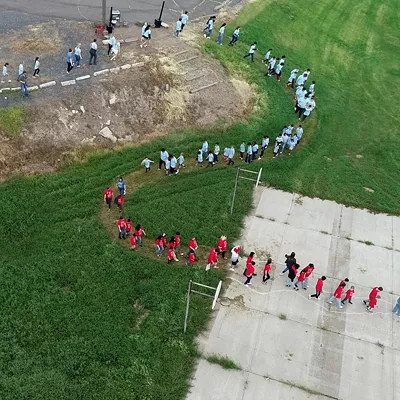You never know what's going to nudge you onto a new path. For Rachel Allen (Nimiipuu/Nez Perce), it was an atypical art exhibit at the Holter Museum of Art in Helena, Montana. Allen was a high school student at the time, living in Great Falls, where "cowboy artist" Charles M. Russell and other artists of his time defined standards of depicting the American West, including Native Americans.
Although Allen's parents had taken her to plenty of museums, the Holter show was different. It featured multimedia artist Nick Cave's "Soundsuits," which synthesized dance, sculpture, African art traditions, and fashion.
"I just finished my junior year, and I was like, 'This is what art could be? This is amazing,'" Allen recalls.
She attended Interlochen Arts Academy in Michigan, then Cleveland Institute of Art, where she earned a Bachelor of Fine Arts in printmaking.
"I think art and museum work for me have always been on each side of the seesaw of my professional career and just sometimes one goes up, sometimes one goes down, sometimes they're even," says Allen, who is currently a doctoral candidate at the University of Delaware's history of art program.
"It just sort of depends on what stage of life I'm in."
While an undergrad, Allen continued exploring arts administration, including during an internship at the National Museum of the American Indian at the Smithsonian Institution. She noticed a stark contrast between Native representation in Montana and the West versus the Midwest.
"When I was growing up, it was still so obvious that Native people were here," she says, yet she noticed that in Cleveland and the Great Lakes "that erasure [of Native Americans] was so much more apparent."
So Allen went to her college library wondering: What was her art history?
"I was a maker, and I was like, 'OK, who are my forebears?'" recalls Allen, who discovered Indigenous artists like James Luna (Luiseño) and Jaune Quick-to-See-Smith (French-Cree, Shoshone, and Salish) and Lucy Lippard, one of the first art critics to write about women and BIPOC art and artists.
Allen earned both a Master of Arts in printmaking and a Master of Fine Arts in arts and cultural management and museum studies from Michigan State University.
In graduate school, Allen also discovered Feddersen's work.
"As I became more familiar with his work, I realized it was what I was looking for in some ways," she says.
Feddersen's pieces began to feel like old friends, and last year Allen relocated to Spokane to join the big team undertaking "Joe Feddersen: Earth Water Sky."
After its Spokane premiere, the exhibit travels to High Desert Museum in Bend, Oregon, in September 2025. The following year, it'll go on to Missoula Art Museum, whose curator Brandon Reintjes happened to curate the Nick Cave exhibition 20 years ago that so impacted a young Allen.
This year, she was able to close the loop, serving as guest juror for the Missoula Art Museum's exhibition "We Stand With You," addressing missing and murdered Indigenous women.
Allen recognizes how vital it is for institutions to provide access and representation to a broad spectrum, including people who have not necessarily been recognized. That's one reason she was drawn to the MAC.
"The MAC has to do a lot of different things," Allen says, "but of course one of our core missions is celebrating Plateau native art, contemporary and historic. And I love how we do these shows like Joe Feddersen's to celebrate that." ♦



















